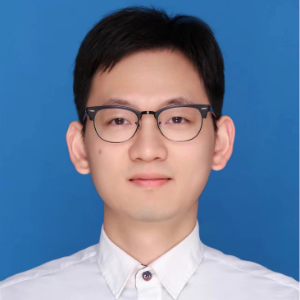Title : Ultrasonic-assisted nanoencapsulation of proanthocyanidins in liposome delivery system to improve the biostability and bioavailability of proanthocyanidins
Abstract:
Proanthocyanidins (PAs), a prominent class of polyphenols, are ubiquitous in the plant kingdom, offering multiple health-promoting and disease-preventing properties, including antioxidant, anticancer, and cardioprotective effects. However, the poor biostability and bioavailability of PAs limit their application, particularly in the digestive tract. In this study, it was hypothesized that encapsulation in lecithin-based nanoliposomes using ultrasonic technology improves the above properties. Based on preliminary experiments, the effects of lecithin mass ratio (1-9%, wt.), pH (3.2-6.8), ultrasonic power (0-540 W), and time (0-10 min) on biostability and bioavailability of purified kiwi leaves proanthocyanidins (PKLPs) were determined. Nanoliposomes prepared optimally with lecithin (5%, wt.), pH=3.2, ultrasonic power (270 W), and time (5 min) demonstrated a significantly (p < 0.05) improved physicochemical stability, homogeneity, and high encapsulation efficiency (73.84%) relative to control. TEM and CLSM show nanoliposomes maintaining homogeneous semispherical vesicles with a unilamellar structure. Molecular docking suggests PKLPs interaction with soy lecithin via hydrogen bonding improved biostability and bioavailability. The simulated in vitro gastrointestinal digestion showed that the formed nanoliposomes could improve the controlled PKLPs release, besides significantly improving bioaccessibility. This was confirmed through in vivo pharmacokinetics study, showing over a 200% increased PKLPs bioaccessibility in loaded nanoliposomes relative to the aqueous system. Overall, ultrasound-assisted nano-encapsulation could efficiently improve the biostability and the bioavailability of PKLPs, with a tremendous application in functional food development or the pharmaceutical industry.
Audience Take Away
- Nano-Encapsulation Insights: Understand principles and applications of ultrasound-assisted nano-encapsulation, focusing on enhancing the biostability and bioavailability of proanthocyanidins (PAs)
- Practical Applications: Learn how to apply these insights in developing functional foods or pharmaceuticals, leveraging encapsulated PAs for health benefits.
- Optimal Conditions: Discover key conditions (lecithin ratio, pH, ultrasonic power, time) for preparing nanoliposomes, ensuring improved stability, homogeneity, and high encapsulation efficiency
- Interdisciplinary Collaboration: Facilitate collaboration across disciplines; research serves as a resource for faculty, encouraging interdisciplinary exploration and content integration into teaching materials.
- Solution for Designers: Provide a practical solution for designers in the food and pharmaceutical industry, addressing limitations of poor biostability and bioavailability, simplifying and enhancing product design efficiency.
- Enhanced Product Design: Implementing ultrasound-assisted nano-encapsulation can improve product design accuracy, streamlining the development of functional foods or pharmaceutical formulations.


